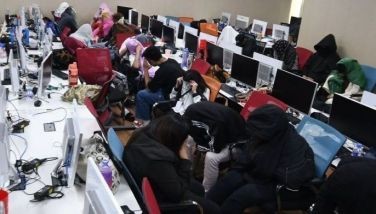How community-led projects kept the urban poor afloat amid COVID-19
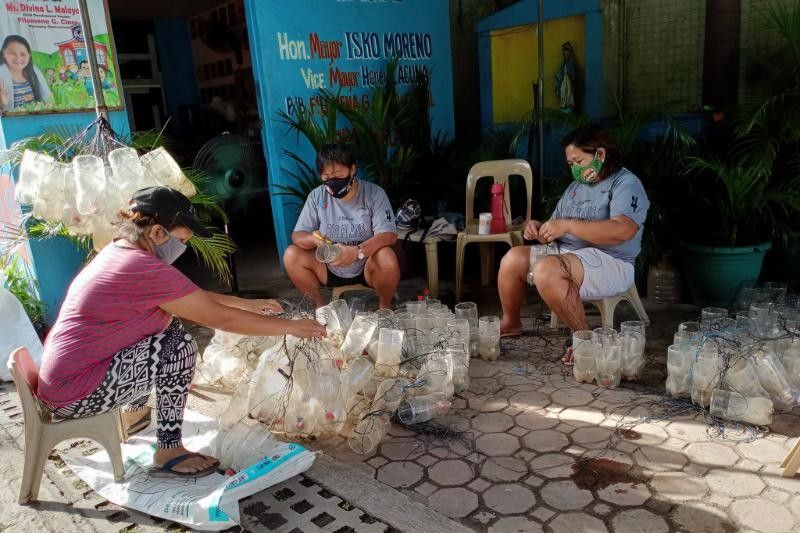
MANILA, Philippines — Since the coronavirus pandemic first hit its peak a year ago, President Rodrigo Duterte has begun highlighting in public addresses that the national government is now strapped for cash, leaving them with just one solution: to sit and wait for a vaccine to solve the coronavirus crisis.
The government response has been rather simplistic, to say the least. The national government issued a sweeping community quarantine to keep the population indoors until the vaccines arrive. For the estimated 17.7 million living in poverty and more than 4.5 million homeless in the country, though, social distancing was always a privilege.
Amid the coronavirus pandemic, urban poor communities—whose residents are classified for the most part as low-wage workers under no work, no pay setups in the informal economy—are caught between intersecting vulnerabilities, such as in health, education, housing, hunger, and unemployment.
Yet, despite anxiety and uncertainties, residents in many of Metro Manila's slum communities have managed to craft their own ways of mobilizing effectively to respond creatively to the coronavirus pandemic.
RELATED: In Metro Manila, fighting COVID-19 requires helping the poor—now
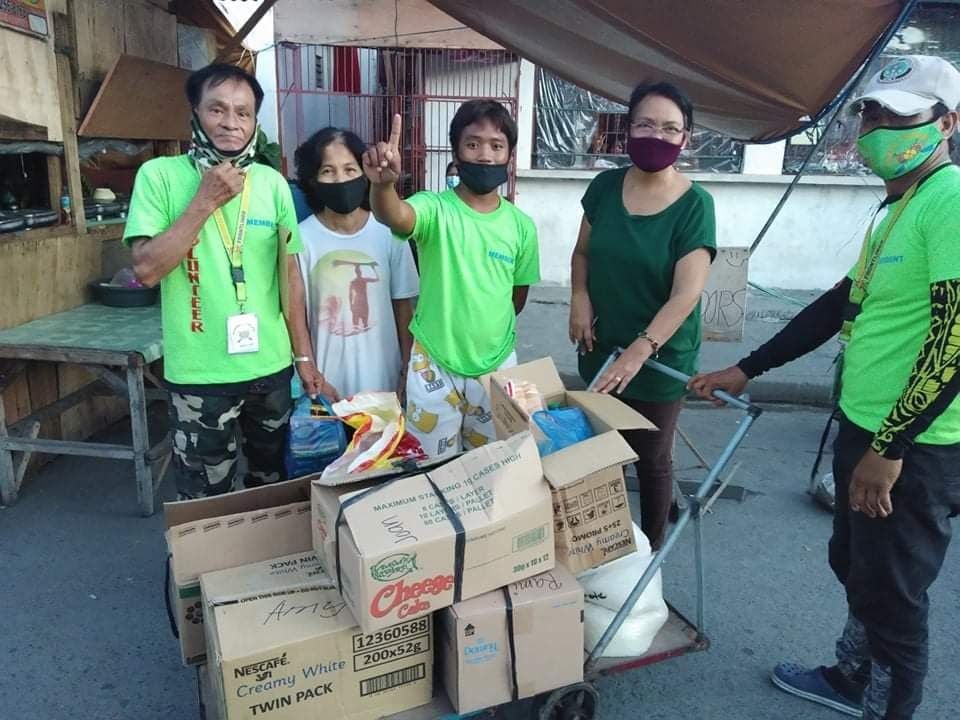
'Urban poor are capable agents'
A recent paper on Southeast Asian Community Responses by the UP Center for Integrative and Development Studies Program on Alternative Development argues that the urban poor in the Philippines have been capable of sustaining themselves, contrary to the popular notion of them "waiting for handouts."
"Experiences of communities living in the urban margins are usually undocumented and largely ignored by mainstream media. In the past and in the present, they have seized opportunities to reclaim spaces and resources and to fight for their rights," the report reads.
"This is evidence that the urban poor are capable agents and are not idle players waiting for government support or subsidy. Experience has taught them that relief goods from the government take time to reach them. They had to act, otherwise their members would starve."
The paper recounted the community-led projects of residents from Alyansa ng mga Samahan sa Sitio Mendez, Baesa Homeowners Association, Inc (Asamba) at the onset of the quarantine. Among others, these consisted of direct partnerships the project was able to establish with various civil society organizations and other organizations.
Through their partnerships, the group was able to secure food packs for members of the community. With the success of its initial community-led initiatives, the group ended up initiating the first and second waves of relief operations within their community from their own funds and without assistance from the local government.
Within Sitio Mendez, livelihood shacks have been put up, vegetable urban gardening has seen a revival, and paid household work among neighbors is flourishing. "The enhanced community quarantine was sudden. We immediately distributed food rations because many went hungry," ASAMBA president Eddie Roldan is quoted as saying in the paper.
In the slum area of Baseco, the story was the same.
Jeorgie Tenolete, president of Kabalikat ng Kaunlaran sa Baseco, said that the community was able to sustain itself with urban gardening established in 2010. Through community gardens, the group was able to distribute vegetables to families despite being under quarantine.
"We realized during the height of the pandemic and lockdown that we cannot rely on the government despite our plea for help," he said in an exclusive statement sent to Philstar.com by nonprofit Urban Poor Associates, adding that food packs from several NGOs were also secured through partnerships.
The Nagkakaisang Mamamayan ng Legarda also found a solution to hunger through gardening. According to UPA, the community was able to partner with the Department of Science of Technology for its Gulay sa Pamayananan Kontra COVID-19.
As a result, the group said, some 60 families were given Enhanced Pottering Preparation for families’ consumption and hydroponics for communal gardening.
Today, the communal garden has become their main source of food.
RELATED: Community gardens can help feed people post-pandemic
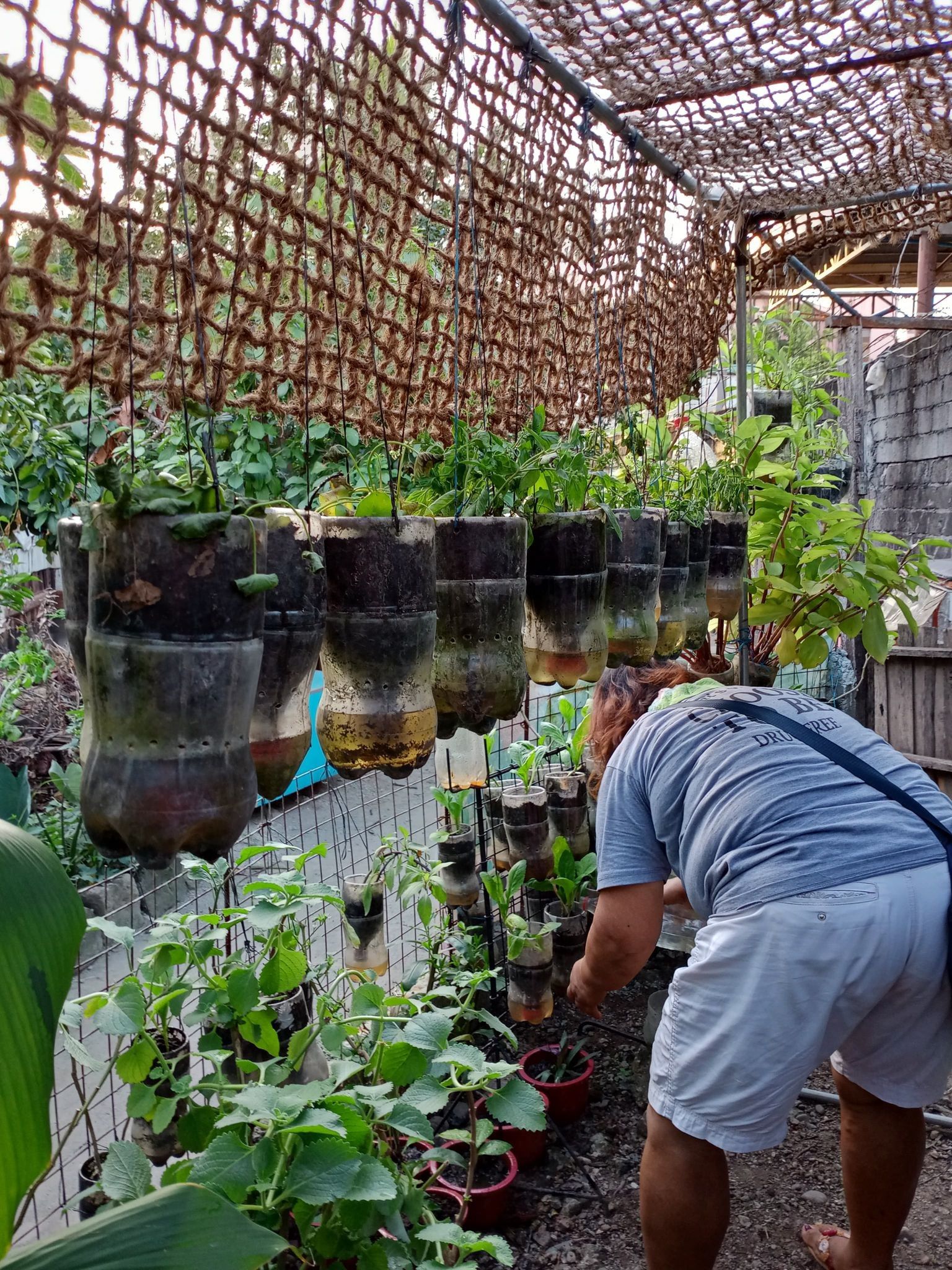
Intersecting inequalities
Through community-led projects, urban poor communities were able to meet their needs outside of just hunger. They've addressed health concerns, as well as education and hygiene.
According to Tenolete, some 20 skilled and unskilled workers in the Baseco community were given training in welding to allow them to put up and maintain handwashing facilities for the community. "The pandemic made us more efficient and resourceful and has proved that if the community is organized, we can help and care for one another," he said.
A separate paper by the Save San Roque alliance entitled, "Community-led response to the COVID-19 crisis: Initiatives of Sitio San Roque, North Triangle, Quezon City" outlined other community-organized efforts from Sitio San Roque in Quezon City that have seen success on an almost mainstream level.
"The emergence of COVID-19 in the Philippines and the government’s inutile pandemic response has highlighted the long-standing systemic inequalities and injustices in Philippine society: from livelihood, healthcare, education, housing, and other basic services. Because of these perpetuated vulnerabilities, urban poor communities have taken the hardest hit from the crisis and are, presently, struggling to cope with the exacerbated austerity and precarity existing in urban areas," the paper reads.
Over the pandemic, Save San Roque—which describes itself as a broad alliance of "volunteer architects, engineers, educators, organizers, artists, writers, [and] students"—has organized a number of drives to gather monetary and in-kind donations.
According to the group, these, too, have led to partnerships, ranging from entertainment personalities to corporate entities and church organizations. "This has provided a broader venue for the community not just to gather economic support but to also share their experience as urban poor residents resisting aggressive development," the alliance wrote.
As of late, the alliance has also been prepping its Eskuwela Maralita project, a community learning center meant to be a temporary means of education for the children in the community while face-to-face classes in schools are prohibited and ease the challenges that parents face with modular lessons.
Meanwhile, in Isla Puting Bato, Roberta Abrea, treasurer of People’s Solidarity in Isla Puting Bato (PESO) said: "Food is not our only problem here in Isla. Many of our neighbors suffer from lack of water and electricity disconnection. Our ‘patubig’ (organization’s communal faucet) bill went up because many of the residents asked us if they can continue receiving water to be paid when they get their jobs back."
"But how can they pay? They are not even sure if they still have work to go back to. So our organization is shouldering the cost. We don’t know how long we can manage to pay our ‘patubig.’"
READ: Urban poor face evictions even as pandemic requires them to stay at home
Early calls for support
People's initiatives came amid the lack of government support amid a protracted community quarantine that has since eclipsed the 300-day mark, good for the longest coronavirus-induced lockdown in the world.
At the very onset of the pandemic, members and advocates of the urban poor published a comprehensive open letter addressed to the government's coronavirus task force.
"Indeed, the vulnerabilities of the urban poor are manifold: first, to the virus; second, to hunger; third, to abuse; and fourth, to fear and anxiety. Without a vaccine, treatment, or cure in sight, immediate, inclusive, and comprehensive government intervention is required," the open letter, a copy of which was obtained by Philstar.com, reads.
"The crises faced by the urban poor cannot be solved by enhancing or modifying community quarantines alone. Enhancements and modifications to the government’s health and social amelioration programs and services are also necessary. They are a matter of life and death."
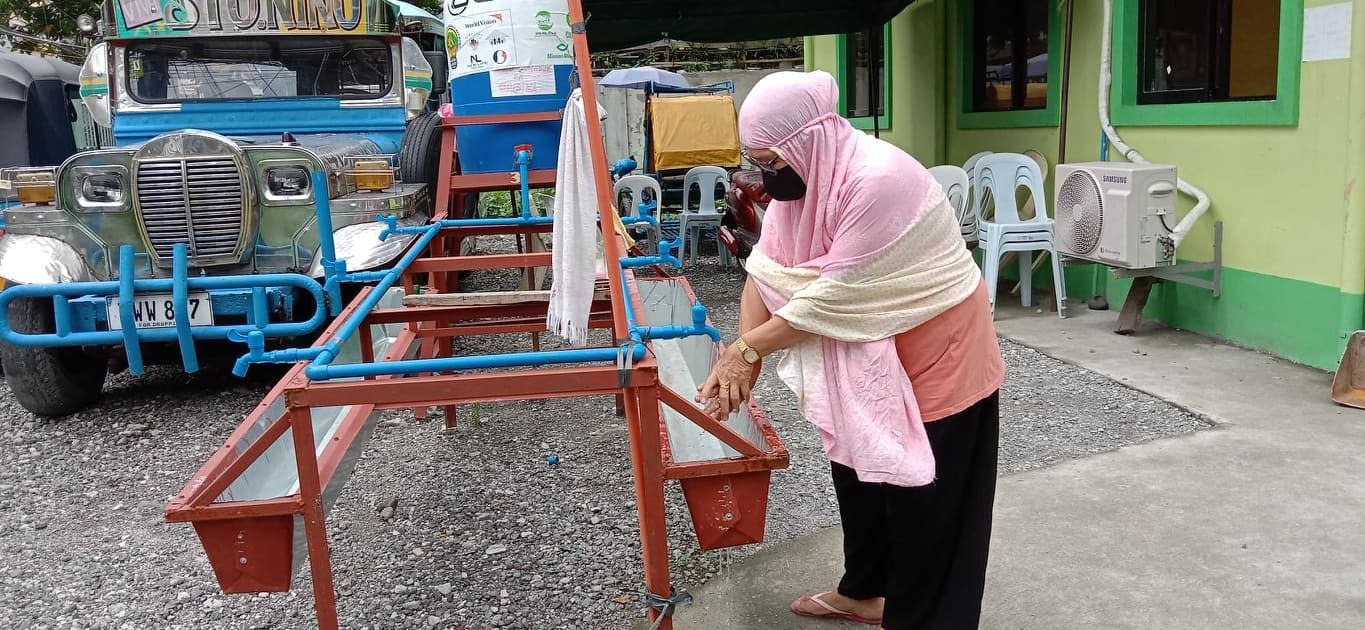
The concerns raised in the letter included:
- Free mass testing in urban poor communities
- The inclusion of beneficiaries of the Urban Development and Housing Program in the social amelioration program
- The setting up of mobile palengkes, botikas, and family clinics
- Distribution of face masks, alcohol, disinfectants, and other personal protective equipment
In response, no mention of the urban poor was made during President Duterte's fifth State of the Nation Address.
Where he could have discussed housing and social amelioration, he brought up the issue of reviving the death penalty by lethal injection instead. The rest of his much-awaited speech to the nation saw the chief executive slamming political opponents, making false statements about Martial Law in Mindanao, expressed apprehension in asserting the country's legal victory in the West Philippine Sea.
Similar calls were echoed often and in a myriad of forms since then. Urban poor group Kadamay held a spontaneous, unplanned protest to call for food aid. Nonprofit Urban Poor Associates held a Panunuluyan re-enactment calling attention to the state of the urban poor amid the pandemic.
Videos taken by @SaveSanRoque say otherwise. Officers from Quezon City Police District Station 15 are audibly heard saying: "Sumama na kayo sa presinto."
— Franco Luna (@francoIuna) January 19, 2021
The mural has since been taken down, the nonprofit says. @PhilstarNews pic.twitter.com/16JtngmPK1
Instead of having their calls heard, communities were met with eviction attempts and warrantless arrests throughout the quarantine.
Some local governments pitched in, but on a national level, support was scarce.
READ: Kadamay unfairly blamed for Sitio San Roque protest, group and supporters say | Evicted urban poor families will be homeless for Christmas, group says
Healthcare professionals and researchers have called for better access to social amelioration programs, especially for the poor, which compose the majority of the country's population. If not, the group said, coronavirus cases in the country could eventually skyrocket.
The paper was also co-signed by a number of non-government organizations, including:
- Associates of the Urban Poor, Inc.
- Community Organizers Multiversity
- Save the Children Philippines
- Joly Homes Foundation, Inc.
- Urban Forum PH
- Samahan ng Mamamayan - Zone One Tondo Organization (SM-ZOTO)
- Koalisyon Ng Mga Samahan Ng Taga-Balagbag, Inc.
- Bagong Pag-Asa ng Taytay Homeowners Association, Inc.
Generated by outside help
According to Institute of Philippine Culture research scientist Mary Racelis, community-initiated projects are typically galvanized by outsiders such as community organizers, church-based nonprofits, or social development workers.
Racelis, who holds doctorates in both the social sciences and the humanities, is a social anthropologist teaching at both the University of the Philippines and the Ateneo de Manila University and a trustee on the board of Urban Poor Associates. She is the author of "The Dynamics of Power in a Philippine Municipality", and the co-author of "Making Philippine Cities Child Friendly: Voices of Children in Poor Communities."
"It usually takes someone from outside to come in and enable people to think through for themselves, why are things the way they are? They raise questions about, is this life natural? Just the thought that it’s not just me, it’s not just my household or my neighbors, it’s really all of us," Racelis, who was among those who signed the open letter, said in a phone interview with Philstar.com.
"So by discussing with them issues on the ground and getting people to think through them, they get to what they can do about it. That’s the role of community organizers."
Other communities have not been lucky enough to find opportunities to assert self-determination.
Bernadette Sabalza, President of Samahang Magkakapitbahay sa Slip-0, said that her organization has been forced to go to piers and wet markets scavenge for vegetables and fruits that went unsold.
"We don’t want to depend on the government for our daily needs. However, this pandemic and lockdown have brought us deeper suffering and hopelessness," she said.
Resistance a common experience across communities
On the other hand, existing efforts are also assailed by authorities, examples of which are well-documented. Save San Roque in its report noted that state resistance only led to division and fragmentation early on amongst people's organizations within the urban poor community despite their shared experiences.
"Police and military are there almost daily, conducting counter-insurgency operations and spreading red-tagging propaganda. It's become normal for residents to be disturbed by the police," the group told Philstar.com in an online exchange.
"De-legitimization of the ‘radical’ and ‘militant’ embedded in government policy and practice has facilitated the political hostility and factionalism amongst POs," it said, adding that it was the coronavirus pandemic that united the groups once more.
For Racelis, this resistance to people's organizations stems from the popular imaginations of the poor.
"Government has the resources, and in the short run [communities] need the government to allocate these resources to them, so they start with these projects themselves and making demands...[but] if you have a mayor who doesn’t want people to organize on their own in fear that they might rise up against them, it’s a very iffy thing," Racelis said.
"The [media] always makes a deal that these are lower-income people and therefore 'pasaway.' It's the assumption that they're not good people. And [authorities] feel threatened by that. But the barangay should be the ones who defend their own people."
RELATED: 'Conducting dialogue': Cops raid San Roque community kitchens, tear protest materials
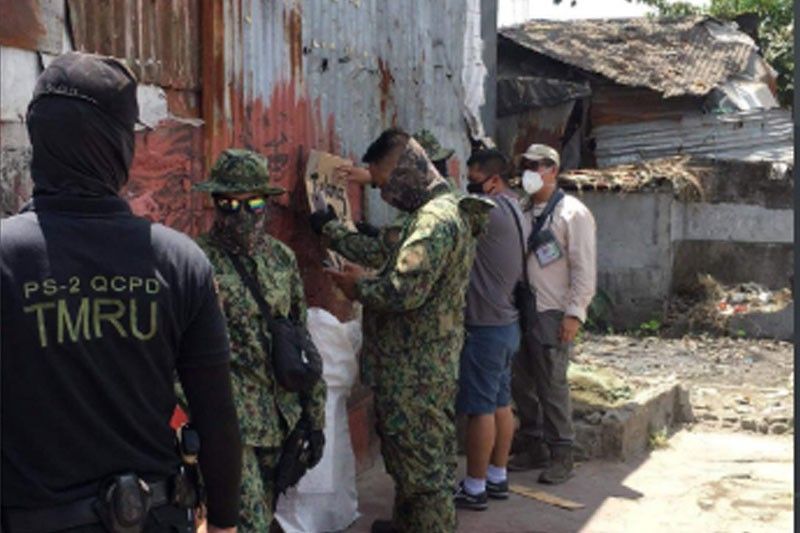
Women leaders
Whether in peacetime or in war, after all, women are among the hardest hit during calamities, and an enhanced community quarantine is no exception. Under lockdown, women bear the brunt of the disruption of not just the family’s livelihood but of their home and community life as well.
According to UP CIDS, the community of ASAMBA also saw social protection measures were spearheaded by the group's women leaders. These included watchmen roles monitoring the observance of physical distancing in their communities and standing watch at their village portals to control who goes in or out.
Thanks to these women leaders, the research paper said, non-residents entering the community were screened, and residents were reminded to carry face masks and identification cards by means of a public address system with speakers installed throughout the community.
Racelis shared this sentiment, adding that in her experience working with communities, "many of the women… were the ones mainly involved in the community level."
"When it comes to health programs, feeding programs who are the local leaders, very often its women who initiate them," she said.
"One of the things we found out [was that] for community-based efforts it's women know how to deal with the authorities. They know how you have to maneuver around them because that's women's role in society in a way, in a very patriarchal society."
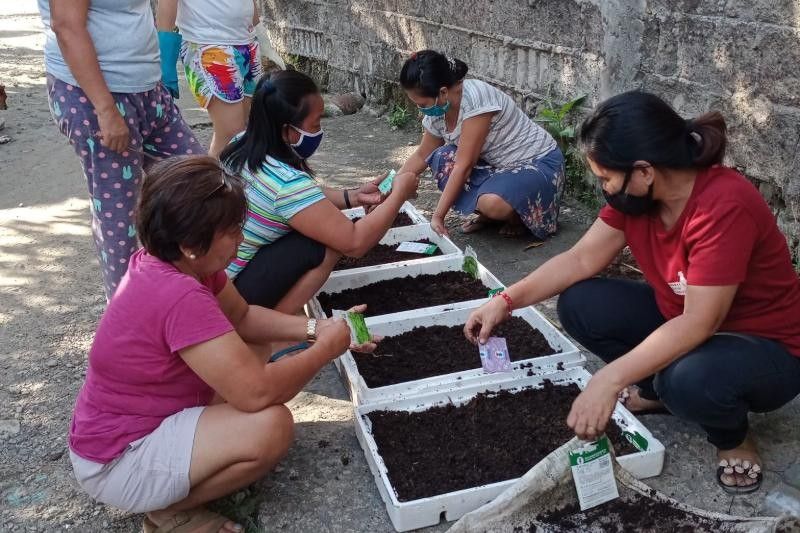
Government still necessary for sustainable communities
With the Duterte administration slowly transitioning into its national vaccination program, inoculation presents another problem for the urban poor.
Alice Murphy, Urban Poor Associates executive director, urged the government to value people's participation.
“Organized communities showed ability to be more resilient and more capable of high-quality decisions for themselves when it comes to housing solutions and even the pandemic...but they can only do so much. The government must help them and must listen to people’s suggestions," she said.
Her sentiments were shared by Racelis, who said, "Communities have shown a great deal of being able to do things on their own, but that's not what governance is about... Barangay governance has to be involved later on. Besides their obligation to the people, they’re the ones with access to the vaccines. They have the resources, and they have to prioritize those who need them most especially in the time of COVID."
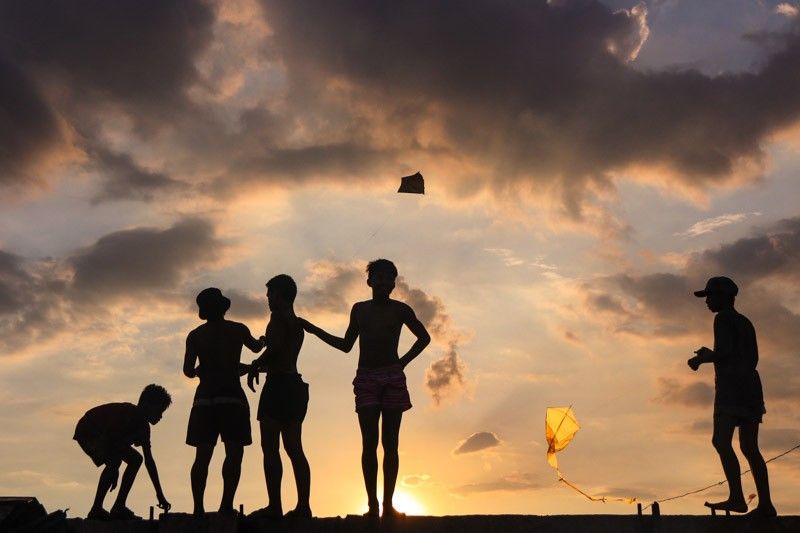
'Magtulungan tayo'
Exactly 309 days since the enhanced community quarantine was first hoisted over some parts of Luzon, sustainability is slowly becoming a factor, with each group admitting to being concerned over the eventual and inevitable donor fatigue and disengagement of volunteers.
"Since there is no financial source other than the donation drive, exhaustion of funds have naturally led to the discontinuation of these community-led initiatives after several months of operations," Save San Roque said in its report.
But the urban poor have learned they can't just stand around and wait and are now bearing the fruit of solidarity and collective action. For these communities, the only ones to depend on are each other.
For her part, Racelis said: "Sustainability comes when the problem is defined by the people themselves, and outsiders like the government and NGOs show them how to get access to these resources for it to become a collaborative program. Communities who have not had that advantage to mobilize themselves ought to start joining alliances...in the end, that should be the way it is: people's organization to people's organization."
In a reminder to community leaders, United Muslims Association president Bobby Dimatarungan said: "Dapat ‘iyan [pagkakapwa-tao] ang gawin natin dahil ngayon, panahon na ng pagkakaisa. Magtulungan tayo. Nasa gitna tayo ng kagipitan. Tayo-tayo nalang ang andito. Dapat tayo magkaisa."
(Community among fellow people is how we should be doing things, and it's time for unity. So let's help each other. We're in the middle of an emergency, and we're the only ones left here. We should be one.)
READ: Why Kadamay and the urban poor are easy targets for government and the rest of us
- Latest
- Trending

























